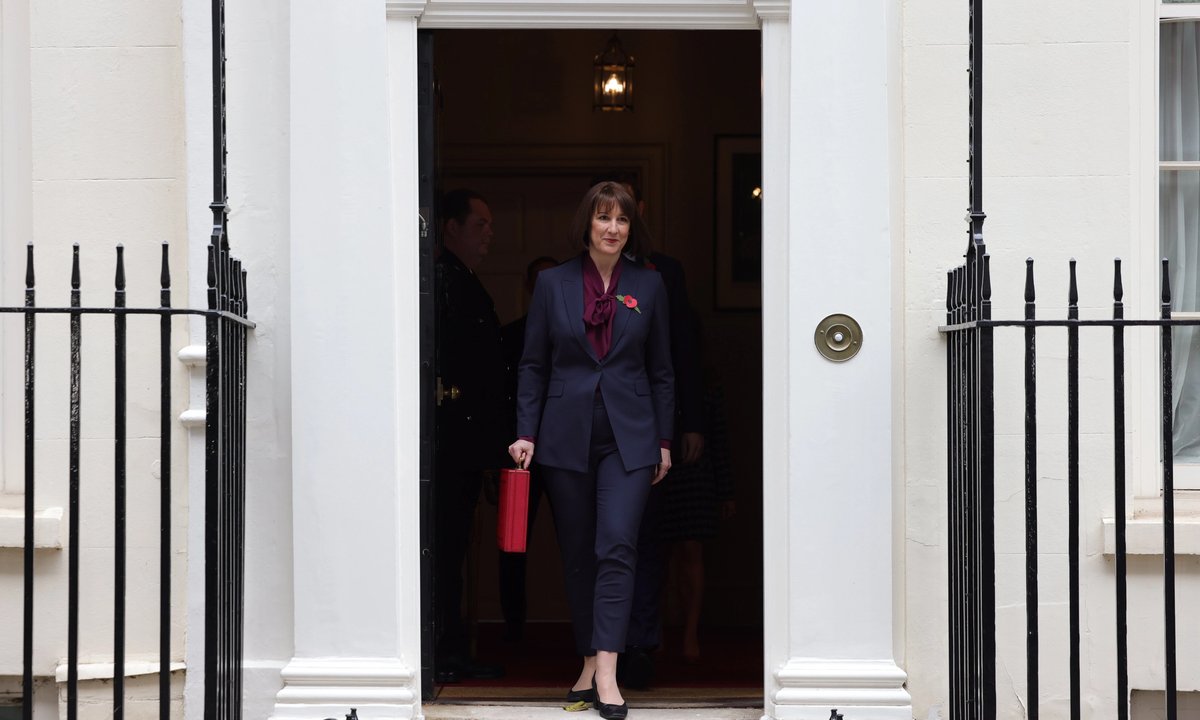
A boost in funding for national museums, announced yesterday by the Chancellor Rachel Reeves in her long-awaited budget, has been welcomed by culture figures. However, the spending pledges announced by the new Labour government were also criticised by key arts organisations and regional museum chiefs, who said that the financial plans failed to address long-term challenges facing the sector. Some culture leaders also expressed concern about changes to the existing regime for taxing non-UK domiciled individuals.
Crucially the UK Department for Culture, Media and Sport (DCMS)—which funds the arts councils for England, Wales, Scotland and Northern Ireland—will receive a 2.6% real-terms increase in funding, receiving £2.3bn in total from 2025 to 2026 for capital spending on future projects. However, the Resource DEL figure (RDEL)—money spent on day-to-day resources and administration costs—remains at £1.5bn over three years (2023-26)—a drop in real terms of 2.5%.
Ben Walmsley, the director of the Centre for Cultural Value at Leeds University, says: “This is a complex scenario but my understanding is that the DCMS has received a real-terms cut in its operating/resource budget and the projected total budget, which does look like a small uplift, is predicated on projected economic growth so is subject to change/revisions in the spring budget. Overall it is mixed news, but I guess the department has arguably fared relatively well for an unprotected area of spending.”
What impact will the budget have on national museums?
National museums will receive more funding, says the budget document, which outlines “increasing support for arts and culture by raising grant-in-aid for the national museums and galleries to help support their long-term sustainability, and providing a package of cultural infrastructure funding that will build on existing capital schemes”.
The exact figures for this funding are to be confirmed. However, the budget document stresses that “further details around individual schemes such as these will need to be assessed against departmental settlements”. The National Museum Directors’ Council, which represents the leaders of the UK’s national collections, said it is “waiting to hear all the details of yesterday’s announcements” before commenting.
In another positive move, The Art Newspaper understands that Museums and Galleries Exhibition Tax Relief, which allows institutions to claim tax relief on costs linked to setting up an exhibition, will be permanent. The move was originally announced in the previous Conservative government’s spring 2024 budget.
“From 1 April 2025, the rates of theatre tax relief, orchestra tax relief and Museums and Galleries Exhibitions Tax Relief will be set at 40% for non-touring productions and 45% for touring productions and all orchestra productions. These rates apply UK-wide,” says a policy chapter in the document.
Other reactions came from the national non-profit organisation Creative UK, which gave a guarded response, saying it welcomed the UK government’s commitment to publishing a comprehensive sector plan for the cultural and creative industries, as part of phase two of the spending review which takes place next year. “[We] look forward to assurances from the government that our sector will be stimulated to drive inclusive growth through a quantum of investment, alongside other high-growth areas,” it said.
What impact will the budget have on regional museums?
The Chancellor also pledged to increase local authority spending by 3.2% in the next financial year, throwing a lifeline to cash-strapped councils, at least ten of which have issued section 114 notices in England this year—the council equivalent of bankruptcy.
In the worst case, Birmingham City Council plans to sell off £750m worth of assets during the next two years to help balance its books. Sara Wajid, the co-chief executive of Birmingham Museums Trust, says in a statement: “While we welcome the overall uplift for DCMS, this budget leaves us worse off and we are already in a dire financial situation in Birmingham. We look forward to discussing solutions with the treasury to protect the world class cultural heritage for the people of the West Midlands and the nation.”
Jenny Waldman, the director of the charity Art Fund, says: “While we’re pleased to see that the government has committed to increase core local authority spending power by around 3.2% in the budget, and promised some much-needed support for national museums and galleries through increased grant-in-aid funding, and capital investment, the budget falls short of addressing the urgent and long-term challenges facing the sector, particularly for civic museums.”
Art Fund will today launch a funding initiative awarding £1m in grants to local authority museums. Recipients include The People’s Palace in Glasgow, which will receive £10,000, and the Museum of Making in Derby which will receive £45,000. “With local authority budgets stretched to breaking point, many museums are facing imminent threats to their operations,” says an Art Fund statement.
Tony Butler, the executive director at Derby Museums, tells The Art Newspaper: “The Chancellor’s budget puts many civic museums—especially those run by independent trusts—in a worse position. It fails to address the acute financial crisis facing regional museums by overlooking their appeal for emergency support next financial year.
“Moreover, the above inflationary increase in the National Minimum Wage [to £12.21 an hour] and increase in employer National Insurance contributions will increase costs and put even more pressure on already fragile museum organisations.”
What could changes for non-doms mean for the arts?
Rachel Reeves also confirmed that she plans to scrap the “outdated non-dom tax regime”, through which non-UK domiciled individuals only pay UK tax on money earned in the UK. “Those that make the UK their home should pay their taxes here,” she said in her speech to Parliament. Closing the loopholes in the scheme would create £12.7bn over the next five years, added the chancellor, by ending the use of offshore trusts for instance.
However, the impact of this change is still of concern for institutions seeking financial backing from philanthropists. The director of a UK arts foundation who preferred to remain anonymous says: “Sadly many of the non-doms are philanthropic because it connects them to the UK; this pushes them away.”
